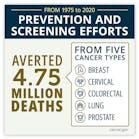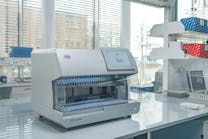Bio-Rad highlights its Droplet Digital PCR technology at the 2014 AACR Annual Meeting
Representatives of Bio-Rad Laboratories are showcasing the company’s Droplet Digital PCR (ddPCR) technology at the 2014 American Association for Cancer Research (AACR) Annual Meeting taking place in San Diego this week. Scientists from six academic and medical institutions, and Bio-Rad's own scientists, are presenting eight posters highlighting their advances in cancer research using ddPCR.
BRAF is a gene frequently mutated in melanoma, a cancer for which there are no effective blood tests to monitor disease progression. A study presented by David Polsky, MD, PhD, and colleagues at the New York University Langone Medical Center shows that ddPCR can be used to track the levels of mutant BRAF DNA in the blood of melanoma patients undergoing treatment. Specifically, their results show that levels of mutant and total BRAF DNA in the plasma of patients with stage IV melanoma change as the disease progresses. The study also demonstrates that ddPCR can be used to quantify those changes, showing promise that this assay could be used to predict disease progression.
Researchers led by Hanlee Ji, MD, Stanford University School of Medicine, are presenting a new ddPCR method that allows researchers to investigate genetic aberrations without using traditional fluorogenic probes. They developed a new technique using a nonspecific DNA binding dye that Bio-Rad spokespersons say is fast and cost-effective for applications such as copy number variation (CNV) and single nucleotide variation (SNV) assessment. This has broad applicability for the assessment of genetic aberrations associated with cancer.
Bio-Rad application scientists are demonstrating additional novel applications of ddPCR, including single-cell transcript profiling; rapid and high-throughput cross-validation of NGS methylated targets; and ultrasensitive and multiplexed detection of cancer mutations in metastatic colorectal cancer formalin-fixed paraffin-embedded (FFPE) and cell-free DNA samples. Watch a webinar on cancer applications of ddPCR.





